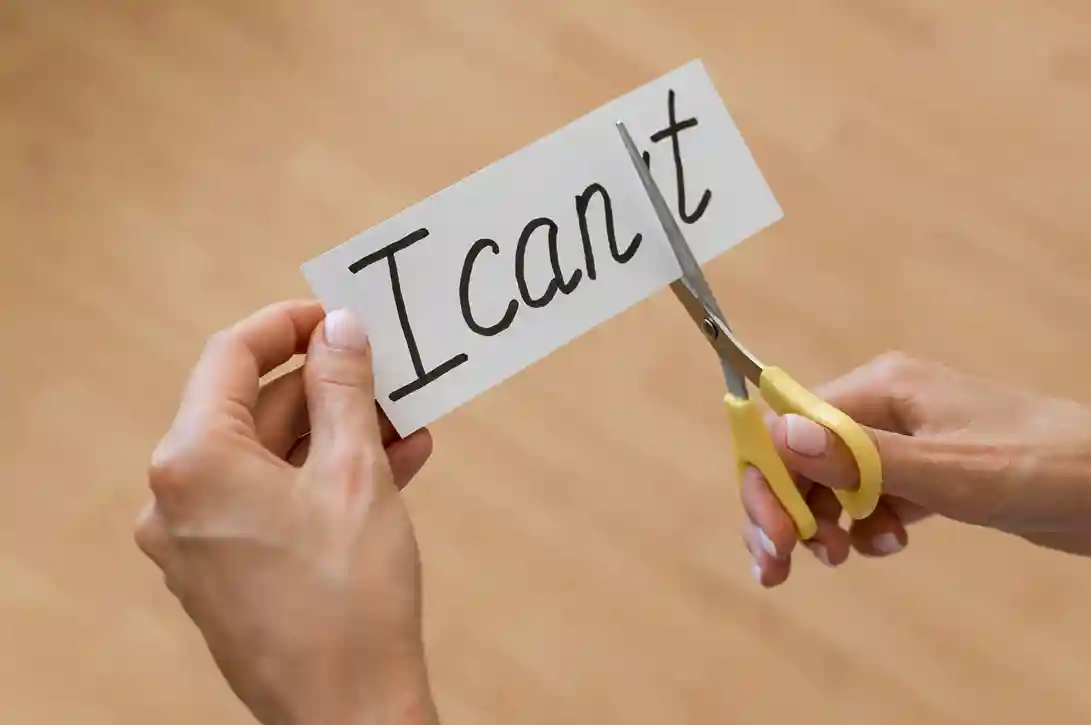The first foundation of your reality is your mindset. It conditions you in your beliefs, in your behaviors, and in your results. The thing is, what if you could simply change the words you use and change your mindset? The idea behind this powerful tool for self-improvement, this transformative concept, can be expressed in the phrase “Change your words change your mindset.” In this article, we’ll take a look at how your language affects all of your thoughts, emotions, and actions and give you actionable tips that you can use to powerfully leverage the words you speak to build a more positive and more productive mind.
The Power of Words: What They Are and How They Change Your Mind
Words represent something much more than only something to communicate with. They carry energy, and they are the ones to influence your inner dialogue and your self-understanding of the world and yourself. Using empowering language forms a growth-oriented mindset. On the flip side, limiting or negative words will reinforce this idea of a ‘fixed mind-set,’ making you stuck in self-doubt and fear.
How Language Shapes Thought
Language and thought have been long studied by linguistic experts. The words you use to describe an experience can change how you experienced the same. Let’s say you replace “I can’t” with “I’m learning to,” and instead of defeat, you’re shifting to possibility. The principle ‘change your words change your mindset’ is well demonstrated here with this simple shift.
Shaping the beliefs with the help of self-talk
The internal dialogue you give to yourself—that is, the words you say to yourself—can either help you or hold you back. Self-talk that’s negative, such as ‘I’ll never be good enough,’ holds them back and just entrenches insecurities. In turn, replacing stupid thoughts with ‘I’m growing and getting better each day’ will make this confidence and resilience skyrocket. Next up is changing your self-talk so you can adopt the ‘change your words change your mindset’ philosophy.
7 Ways to Shift Your Vocabulary and Shift Your Mindset
1. Reframe Negative Self-Talk
For instance, negative self-talk tends to be expressed as such limiting beliefs as “I’m not good enough” or “I always fail.”. If you are able to reframe these statements as positive affirmations, then you can rewire your brain and be successful. So change “I fail every time”; instead, go for “Every fail brings us one small step closer to success.” Reframing doesn’t deny the reality but offers you an opportunity to look at the possible solution rather than the possibilities.
2. Use Empowering Language
Use of empowering words rather than disempowering ones. Instead of saying I have to, say, I get to. This minor change changes obligations to opportunities and creates gratitude. The ‘change your words change your mindset’ approach uses empowering language and unfolds with an attitudinal change that is key to the ‘change your words.’.
3. Change your vocabulary to be more growth-oriented
Make them reflect a growth mindset: I’m learning, I’m becoming, I’ll figure it out. They give your brain the signal that challenges are the chance for growth. A vocabulary that allows you to grow: you view obstacles as stepping stones, not roadblocks.
4. Practice Gratitude Through Words
Being grateful radically changes your mental health. Begin your day with, “I’m grateful that…” or close a conversation with “Thank you for…” They encourage positivity and help relationships. Practicing gratitude is also a principle in the sense of ‘change your words change your mindset’ because you are being encouraged to focus less on the lack in your life.

5. ‘I Am’ Statements: Be Mindful of Them
After saying ‘I am,’ the words you use determine your identity. Instead of ‘I am bad at math,’ say ‘I am working on improving my math skills.’ This tiny alteration helps build a mindset that is proactive and confident. Saying positive ‘I am’ statements repeatedly will change the way you see yourself over time.
6. Speak in Solutions, Not Problems
Instead of being fixated on the problem, when you’re presented with obstacles, try to focus on solutions. Instead of “This is impossible,” say, “How do I go about fixing this?” These changes help foster problem solving as well as resilience. This solution-focused language keeps you motivated and in line with the forward-thinking thought.
7. Start Surrounding Yourself with Good, Positive Language
Your mindset is also affected by the words you hear from others. Surround yourself with people who will support you and are positive. Always, always be at the top of content that brings you positive and encouraging ideas to support ‘change your words change your mindset.’. Your thoughts and behaviors are created by the environment you create.
In Action: “Change Your Words Change Your Mindset”
Examples of how changing your words changes your mindset come straight from real life. What about a person who is suffering some professional setbacks? Whereas, instead of declaring, “I’ll never succeed,” they say, “I’m learning to become better from these experiences.” In particular, this shift improves emotional resilience and in turn spurs proactive steps toward the goals.
A Case Study of Positive Transformation
Let’s take a simple example: Sarah, who was a professional young person with self-doubt. Inside, her dialogue was all about “I’m not capable” or “I’ll never attain my goals.” Once she adopted ‘change your words change your mindset,’ she started to use affirmations like ‘I am able to defeat challenges.’ Her confidence grew over time, and she would reach ones she deemed impossible.
Why Changing The Words You Use Matters
So, it’s not just semantics when you change your words. It’s also changing your cognitive structure. By using positive words, you stimulate the brain’s reward centers, and you get ‘hope’ and ‘determination’ feelings. Over time, such linguistic shifts can permanently change behavior and ways of thinking.
Words and Mindset: the neuroscience behind it all
The studies in neuroscience show that even words can affect brain activity. Positive words reinforce neural pathways for optimism & problem solving, and negative words increase stress response. If you choose your words consciously, you can reprogram your mind toward positivity.
The Ripple Effect of Positive Language
What you say weighs not only on you but also on those around you. Positive language fosters a positive environment that in turn will improve teamwork and relationships as well as overall well-being. The ripple effect behind this “change your words change your mindset” principle brings about the wider implications.
How to Incorporate Positive Language in a Practical Way
-
- Daily Affirmations: Positive affirmations can be your start to the day, reflecting on what you want to achieve. For example, saying, I am able to achieve my dreams.
-
- Journaling: Get into writing about your challenges; reframe the challenges in a positive way. An example would be, I learned resilience from “this obstacle.”
-
- Mindfulness Practice: If you pay attention to your internal dialogue, whenever you find yourself engaged in a negative pattern, you are able to correct it immediately.
-
- Feedback Replacement: Instead of a phrase like “You’re doing it wrong” when giving feedback, you should use phrases like “This is an area to grow in.”.
-
- Celebrate Small Wins: Verbalize your progress, whether it’s small or big. Talking about “I am proud of myself for this effort” helps you to affirm a positive self-image.
-
- Visualization with Words: Give a vivid expression of your goals and future achievements in words. It becomes more tangible saying, “I see myself thriving in my dream job.”.
You unlock the potential to change your life through the principle of ‘change your words change your mindset.’ Words are powerful tools; use them wisely to shape a mind set that aligns to your growth, happiness and success.
FAQ Section
This phrase makes the connection between language and the thought. You can make yourself more growth-minded and positive by choosing empowering and positive words.
2. What can I practice in changing my words?
Begin by discovering patterns of negative language. Secondly, replace them with positive stuff to replace this habit, and practice daily affirmations.
3. Can changing my words really change my life?
It’s true: your thoughts and feelings depend on words. Positive language can consistently ensure better mental health, better relationships, and more success.
4. Is there any scientific study to back up this idea?
The good news: research in neuroscience proves that positive words, compared with negative ones, activate brain regions related to reward and motivation, while negative words do the opposite thing—trigger stress responses.
5. When do I start to see results?
Consistency is key. It will take a few weeks of practice before you begin noticing small changes in your mind but substantial change with your mindset.
6. How does the environment enter into this process?
Language and mindset come from the environment. The ‘change your words change your mindset’ philosophy is backed up by surrounding yourself with positive people and positive content.

